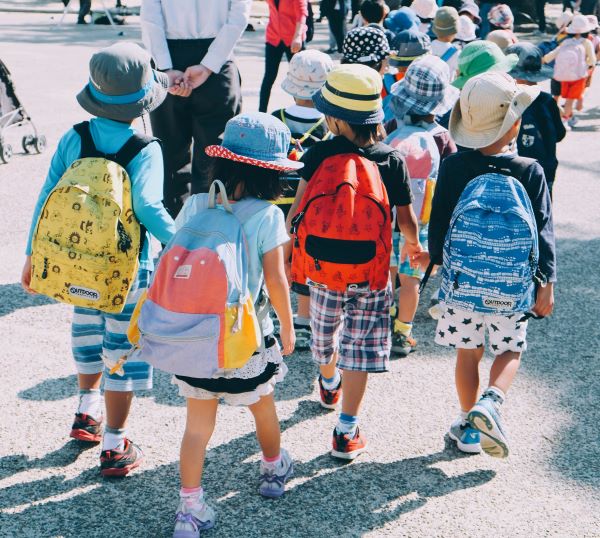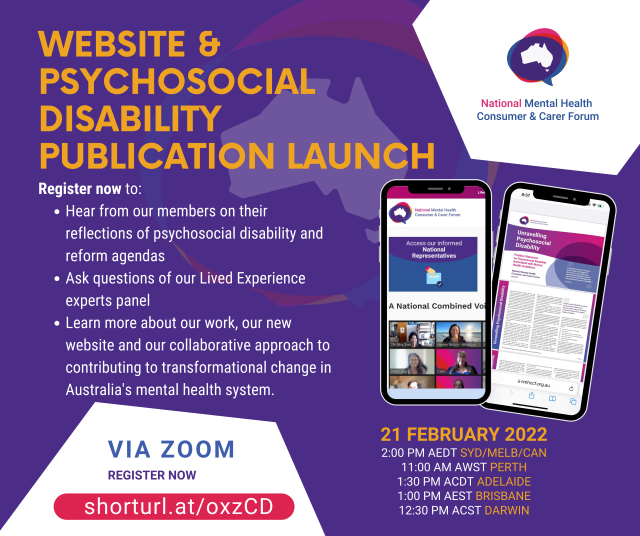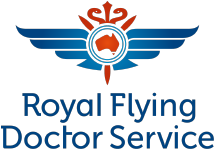
At the end of day one for children returning to school in my neck of the woods, the TV news did a feature on the ‘big return’. There were sections about rapid testing challenges, access to vaccinations, worries about vulnerable children, and features of teachers preparing for the term ahead.
What I noticed though was the theme that developed when the children and young people themselves were asked what they were most looking forward to. Every single one spoke about how excited they were to see their friends, to make new friends, to play with friends, to catch up with friends. Even with the challenges of a microphone, an eager journalist and anxious parents loitering behind them, each one of these children conveyed unbridled enthusiasm about connecting again with peers.
Despite alternative means of connection through technologies like online platforms, social media and phones, what I witnessed was the huge warmth of anticipation each child and young person conveyed about seeing peers in person.
Children value and seek connection. They long for it. Teenagers are well known for their focus on peer connections. And of course, connection matters to adults. Further, this week we have again been reminded how much connection matters to the elderly, especially those in residential care.
So, does connection keep us mentally healthy? Of course it does. We need to stay emotionally and socially connected to support our mental health and wellbeing.
And on the flip side, research has shown that loneliness is a significant variable affecting the development of depression.
This week a range of data was released on service delivery in mental health services across the country. The Productivity Commission released its report on government services for mental health; and the AIHW released its summary of mental health services in Australia and figures on suicide and self-harm.
This is the first data we are seeing from the routine government reports that have been gathered during the COVID era. They are detailed reports and you need some time to make your way through them. We’d be keen to hear what you notice through these reports.
There is no doubt that what is currently measured and reported demonstrates an increase in service delivery provided through funded Commonwealth programs such as Medicare and through the state and territory funded clinical mental health services.
But are we designing, measuring and supporting efforts to build community, build connection, prevent loneliness and strengthen informal supports for children, young people adults and older Australians?
We must see investment in mental health promotion and prevention of mental ill health – and we have specifically called for a social prescribing program to be initiated through the primary care system.
Relationships Australia, a Mental Health Australia member, is leading the way with their “Neighbour Day Campaign”. Research shows that communities where people know each other have better mental health, are safer, and are more resilient. Connecting with people outside of your family and friends is important for tackling Australia’s loneliness crisis.
Let’s incentivise connection, knowing as we do how critical it is to our mental health and wellbeing.
Have a good weekend.

Dr Leanne Beagley
CEO
National Mental Health Consumer and Carer Forum Website and Psychosocial Disability Publication Launch

The National Mental Health Consumer and Carer Forum (NMHCCF) is a combined national voice for mental health consumers and carers. We listen, learn, influence and advocate in matters of mental health reform.
The NMHCCF is inviting you to its Website and Psychosocial Disability Publication Launch.
This is an opportunity to learn more about the NMHCCF’s work, its new website, and also its collaborative process towards transformational change in Australia’s mental health system.
Hear from NMHCCF members on their reflections of psychosocial disability and reform agendas, and ask your questions to a panel of lived experience experts.
The launch will take place on 21 February 2022, 2pm-3pm Australian Eastern Daylight Time (11am AWST, 1.30pm ACDT, 1pm AEST, 12.30pm ACST).
Register in advance for this meeting.
After registering, you will receive a confirmation email containing information about joining the meeting.
NDIS Community Connectors – final report released
Last week Mental Health Australia released a Final Report reviewing the outcomes and lessons learned from the National Community Connector Program for people with psychosocial disability. Mental Health Australia was pleased to partner with the National Disability Insurance Agency, and seven expert local service delivery organisations, to deliver this program supporting people with psychosocial disability to engage with the NDIS. The program was funded for 12 months until June 2021.
This internal review found that the program was successful in supporting greater participation of people with psychosocial disability and experience or risk of homelessness in the NDIS, across the seven program locations. The program demonstrated that greater equity in access to the NDIS is possible through appropriate resourcing. There remains ongoing need for this outreach and connection support.
Read the NDIS Community Connectors Final Report.
New Disability Employment Support Model submission
This week Mental Health Australia called on the Australian Government to better support people with psychosocial disability into meaningful employment, in a submission to the Department of Social Services’ consultation on the new disability employment support model. Mental Health Australia recommended the new model include a funding and performance framework which supports flexibility for person-centred services and complex needs, integrates employment and mental health services, incentivises support for career advancement, and addresses stigma and discrimination. Read the submission here.
Work with us!
Mental Health Australia is seeking a Director Corporate Services. Reporting to the CEO, this multi-faceted part-time position plays a vital role in the successful operations of Mental Health Australia. Find out more about the role.
|
On Monday we are hosting a Stakeholder Consultation for Digital Mental Health Services and then we are discussing mental health prevention with Prevention United. I will be attending the Report Launch “Ending Homelessness in Australia”, meeting with Nick Tebby from Relationships Australia, and later meeting with Brad Morgan from Emerging Minds.
On Tuesday I will be joining Relationships Australia to celebrate the twentieth year of Neighbour Day and later meeting with Kerryn Pennell and Vivienne Browne from Orygen. I am looking forward then to catching up with Katherine Newton from R U OK?
On Wednesday there is a Mental Health Australia Board meeting and we also have our monthly meeting with Mark Roddam and the Department of Health team. Later I have a Regional Mental Health Strategy Advisory Group meeting hosted by the Department of Health.
On Thursday I have a meeting with PHN CEO Megan Cahill and later I have my regular meeting with the Co-Chairs of the National Mental Health Consumer and Carer Forum.
On Friday I am meeting with Katrina Armstrong from Mental Health Carers Australia. Later I have a Content Advisory Group for the National Workplace Initiative and then a catch up with Cindy Smith from the Australian Association of Social Workers.
|
|
Member Benefits, Jobs and Profiles
|
|
|
|
Communicate your news, job vacancies, or upcoming events to more than 5,000 people in the mental health ecosystem weekly.
Mental Health Australia members are invited to send us news, announcements, job vacancies, events or other notices for inclusion in the Weekly CEO Update newsletter. To do so, simply fill out this form by COB each Wednesday for your notice to appear in the newsletter the following Friday.
Member Profiles

Royal Flying Doctor Service of Australia
The Royal Flying Doctor Service is one of the largest and most comprehensive aeromedical organisations in the world, providing extensive primary health care and 24-hour emergency service to people over an area of 7.69 million square kilometres. Delivered by a dedicated team of professionals, using the latest in aviation, medical and communications technology, and supported by a vast number of volunteers and supporters, the RFDS is vital for those that live, work and travel in rural and remote Australia.

Mentis Assist
Mentis Assist is one of Victoria’s primary not-for-profit, non-government, community managed mental health service providers supporting people with mental illness and psychiatric disabilities. With a 30 year history in the provision of high quality mental health support in the Southern/ Bayside/ peninsula region and more recently in the areas of Casey and Cardinia, they have supported thousands of people from all walks of life as they achieve their goals. Mentis Assist supports individuals and their families, offering a range of services including one on one outreach and in office support, service and care co-ordination, group activities, family support and a suite of training and meaningful activity options.
|
|
|
Embrace Multicultural Mental Health News
|
Translated information on testing for COVID-19, and for people who test positive for COVID-19
These fact sheets, developed by the Department of Health, contain important information on the types of tests available in Australia and when to get tested, and information for people who test positive for COVID-19 or are close contacts. There’s also further information for people who contract COVID-19 including guidance on symptoms, when to call an ambulance, and how to isolate.
The fact sheets are available in 63 languages:
Getting tested for COVID-19
Information for people who test positive for COVID-19, or are close contacts
What to expect when you have COVID-19

|
The reporting of suicide and self-harm statistics and information on the AIHW website represents one part of the National Suicide and Self-harm Monitoring Project. Suicide and Self-harm Monitoring brings together key statistical data on suicide and self-harm from multiple national sources that will be updated regularly as new data become available. Here, you can examine the data through interactive visualisations and read information on the demographics, trends, methods and risk factors of suicide and self-harm in Australia. This release is an update to data from suicide registers from NSW (October 2021) and Victoria (November and December 2021).
Mental health services in Australia (MHSA) provides a picture of the national response of the health and welfare service system to the mental health care needs of Australians. MHSA is updated progressively throughout each year as data becomes available. $11.0 billion was spent on mental health in 2019-20, 4.4 million people received mental health-related prescriptions in 2019-20.
Australian doctors are prescribing more psychiatric drugs to children and adolescents, researchers from the University of Adelaide have found. This is despite the known risks of adverse effects in young people, and potential consequences for children’s developing brains and bodies. The study, funded by the Channel 7 Children’s Research Foundation, and published in the Australian and New Zealand Journal of Psychiatry, investigated the prescription of drugs used to treat psychiatric disorders, such as depression, anxiety, attention deficit disorders, psychosis and sleep problems. Treatment guidelines for health professionals recommend non-drug therapies as first-line treatment for children and adolescents with these conditions.
Parents and caregivers who home-schooled children during the COVID-19 pandemic experienced significantly higher levels of psychological distress compared to those who didn’t, according to a new study by researchers at The Australian National University (ANU). The study asked more than 1,200 Australian adults to rank their psychological well-being during the first wave of COVID-19 restrictions in March and April of 2020. Those who were home-schooling also experienced greater disruption to their work and social lives. Having experienced home-schooling herself, lead researcher Dr Alison Calear said the results “make perfect sense”.
|
|
|
Butterfly & Instagram launch #BodyKindOnline
Butterfly has launched its new campaign #BodyKindOnline in collaboration with Instagram. #BodyKindOnline explores the intersection of body image and social media, while demonstrating the challenges people may be currently experiencing online. The campaign promotes social media literacy skills, sparks discussion and suggests actions around how people can be kinder to their own body and all bodies whilst online.
‘Ending Homelessness in Australia’ online report launch
With a federal election coming up, it is critical to develop a deep understanding of the evidence base and policy agenda needed to end homelessness in Australia. Join the Australian Alliance to End Homelessness, the Centre for Social Impact, Neami National, and Micah Projects, on Monday 7 February 2022 for the national launch of the Ending Homelessness in Australia report. Perth—9:30am AWST, Brisbane—11:30am AEST, Adelaide—12:00pm ACDT, Melbourne/Sydney—12:30pm AEDT. Register for the launch.
Disability Provider Alert – 2 February 2022
The Department of Health has issued its next COVID-19 vaccination – Disability provider alert 2 February 2022. In this update you will find information regarding new and upcoming vaccination hubs, booster doses via in-reach and other channels, webinar recordings, and information from the NDIA regarding pricing changes. This provider alert along with other resources and information about the COVID-19 vaccine rollout is available from a dedicated web page for disability service providers on the Department of Health website.
Continuity of Care Collaboration (CCC) video highlighting bowel cancer screening
It is recommended that Australians aged 50 and over participate in the National Bowel Cancer Screening Program (NBCSP) every two years. The test can be done at home and takes just 5 minutes. The CCC partnered with member Bowel Cancer Australia and the Department of Health to take broadcaster Anton Enus into a pathology lab where bowel cancer screening is performed. They created a video during the tour that will be to be widely shared on social media at midday this coming Sunday. You’re invited to share the video with your social networks. You can share the 3-minute version or 45-second version.
Expressions of Interest open for partnership with Future Generation Global
Future Generation Global (FGG) is looking for not-for-profits fostering wellbeing and preventing the onset of mental ill-health in young Australians. Throughout February, they are running an Expression of Interest (EOI) process to establish partnerships with a group of prevention-focused organisations.
|
| |









